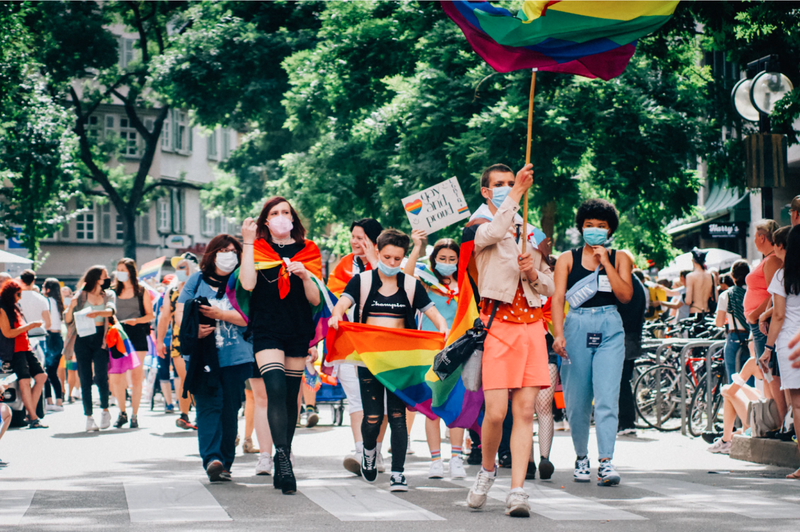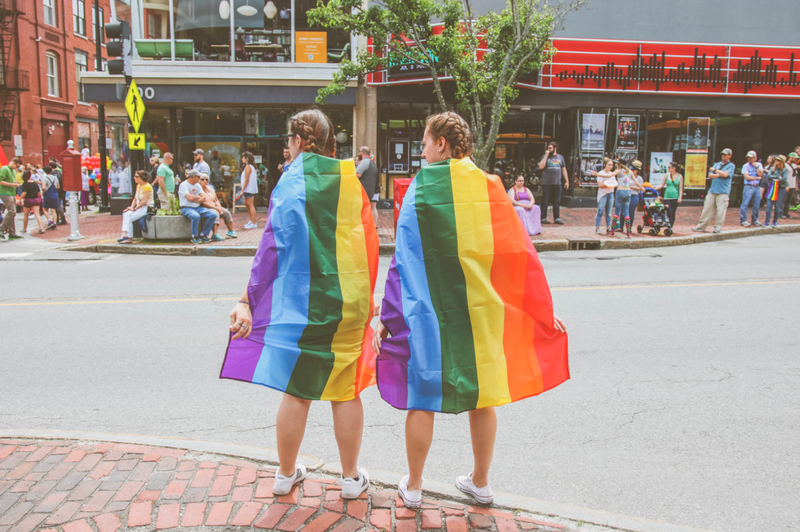morena (she/her) The Parental Rights in Education bill, infamously known as the “Don’t Say Gay” bill, offically passed in the state of Florida under the government of Ron DeSantis. This bill would prohibit the teaching of sexual orientation in classrooms from kindergarten to third grade. This would also allow parents who disagree with their child’s curriculum to sue the school district with the justification that schools, teachers, and principals could not withhold information about gender issues from the children’s parents. As a consequence of the bill’s passing, many more similar to it are in the works throughout the US: including Tennessee, Kansas, and Indiana. In reality, however, this bill does not increase the role of parents in education; rather, it destroys the possibility of a safe space for young children to learn about complex topics such as sexual orientation and gender identity. Therefore, this issue transcends the classroom and could lead to an upwelling of internalized homophobia or self hatred among young, vulnerable children. An image of young LGBT+ protesters and an image of two girls at the annual pride parade side by side. These images demonstrate the themes of resistance and acceptance elicited by analysis of the Florida bill. Images provided by Unsplash. I believe this Dont Say Gay Bill has nothing to do with expanding the role of parents in the classroom, but everything to do with the conservative movement of silencing LGBT+ youth. This bill would never have been considered if the situation were reversed, as conversations regarding heterosexuality have been and continue to be prevalent within classroom settings, even at early ages. One of the arguments in support of the bill are that children in this age category are far too young to be exposed to topics regarding sexual orientation. However, this is not the case, as sexuality is still discussed in classrooms, but only a certain kind is deemed inappropriate. During class, it is not uncommon for students or even parents to make comments about their crushes or who likes who– this is not viewed as inappropriate classroom behavior until it’s two girls discussing liking each other. After this happens, only then are the children suddenly “too young” to be discussing this kind of thing. This perpetuates the false narrative that LGBT+ relationships are inherently more sexual than straight relationships, which then feeds into the myth that queer individuals are perverted or should not be around children. This is not remotely accurate, and only serves to foster more prejudice. Therefore, this bill is not really about protecting children from discussions on sexual orientation, it only serves to limit the type of orientation that is “appropriate” for class.
Additionally, classrooms provide a safe haven for some students to explore their interests safely, and this bill would stifle the ability of teachers to alleviate some stress during confusing times. It is inevitable that some students will take interest in the LGBT+ community, either because they are themselves coming to terms with their own sexuality or gender identity, or simply because the LGBT+ rights movement is a fascinating and integral part of American history and culture. Teachers play a pivotal role in shaping the development of students, and this bill limits their ability to provide support regarding curiosity or questions about sexual orientation. Without the ability to have important discussions on these topics, children will view these topics as inappropriate to talk about or even feel they are doing something wrong by showing interest. Topics covering LGBT+ issues or history should not be erased or viewed as something not to be discussed, rather should be encouraged to create an accepting environment for these young students. I know for me personally, my teachers were very important in making me feel accepted for who I was growing up; if I had to come to terms with my identity without their support or led to think it was wrong to question my sexuality, I definitely would not have the courage to be my authentic self in public today. Even teachers believe this bill is simply an attack on education as this bill limits what they are allowed to tell their impressionable students; by limiting the conversation, teachers feel as though they are not allowed to do their job or play their part in making children feel accepted for who they are. As a result, teachers are planning to resist the limitations on LGBT+ conversations and continue to do their best in making their classrooms open for discussion and a safe space to ask questions. This resistance is admirable in my opinion, as this provides a sense of hope for the future of LGBT+ education and fosters an environment that is dedicated to creating an inclusive classroom setting. Further, governor Ron DeSantis is clearly worried about power, not education nor protecting children from complex topics. If that were the case he would do more to provide adequate resources for students instead of trying to limit the conversations they are allowed to have at school. By signing this Florida bill, he is effectively taking away a vital resource from young students in discovering who they are, which is not my idea of protection– instead, it’s control. This bill would allow the control over what is deemed an “appropriate conversation” to be left up to the government of Florida as well as the parents of students, instead of the teachers who are actually presiding over their children’s education. That being said, the conversations likely to be deemed appropriate would largely exclude LGBT+ history and culture from being explored, once again alienating a group of students instead of providing protections like the governor claimed to be doing with the passage of this bill. Finally, sexuality is intersectional and deserves to be discussed both in the classroom and at home– not silenced or pushed aside because conversations regarding orientation/identity can become complex. In my mind, this complexity makes it all the more important to speak out about. If children are not allowed to express themselves fully, the consequences can be drastic, as can be observed through the increased risk of self hatred or suicide in LGBT+ students. Therefore, as sexual orientation is a vital aspect of identity it’s important to allow all histories and cultures to be explored in order to encourage an environment of acceptance, support, and inclusion. This inclusion should be discussed in the safety of the student’s home, but also in public classrooms to prove the topic of sexuality is not something to be ashamed of, but something to celebrate. Consequently, while the future of LGBT+ education remains to be controversial, I hope one day sexuality is not seen as a taboo topic and is even encouraged to discuss both in classrooms and at home. The expansion of LGBT+ resources and courses would be so beneficial in creating a more accepting environment for all students and young people; therefore, I believe this “Dont Say Gay” bill which limits these resources/conversations has the potential to cause irreversible damage. Instead of its supposed goal of protecting young students, it will cause more alienation and harm. Teachers should be allowed to discuss LGBT+ topics with their students; therefore, this bill should not be enforced or continue to exist in Florida law.
0 Comments
Leave a Reply. |
Search by typing & pressing enter


